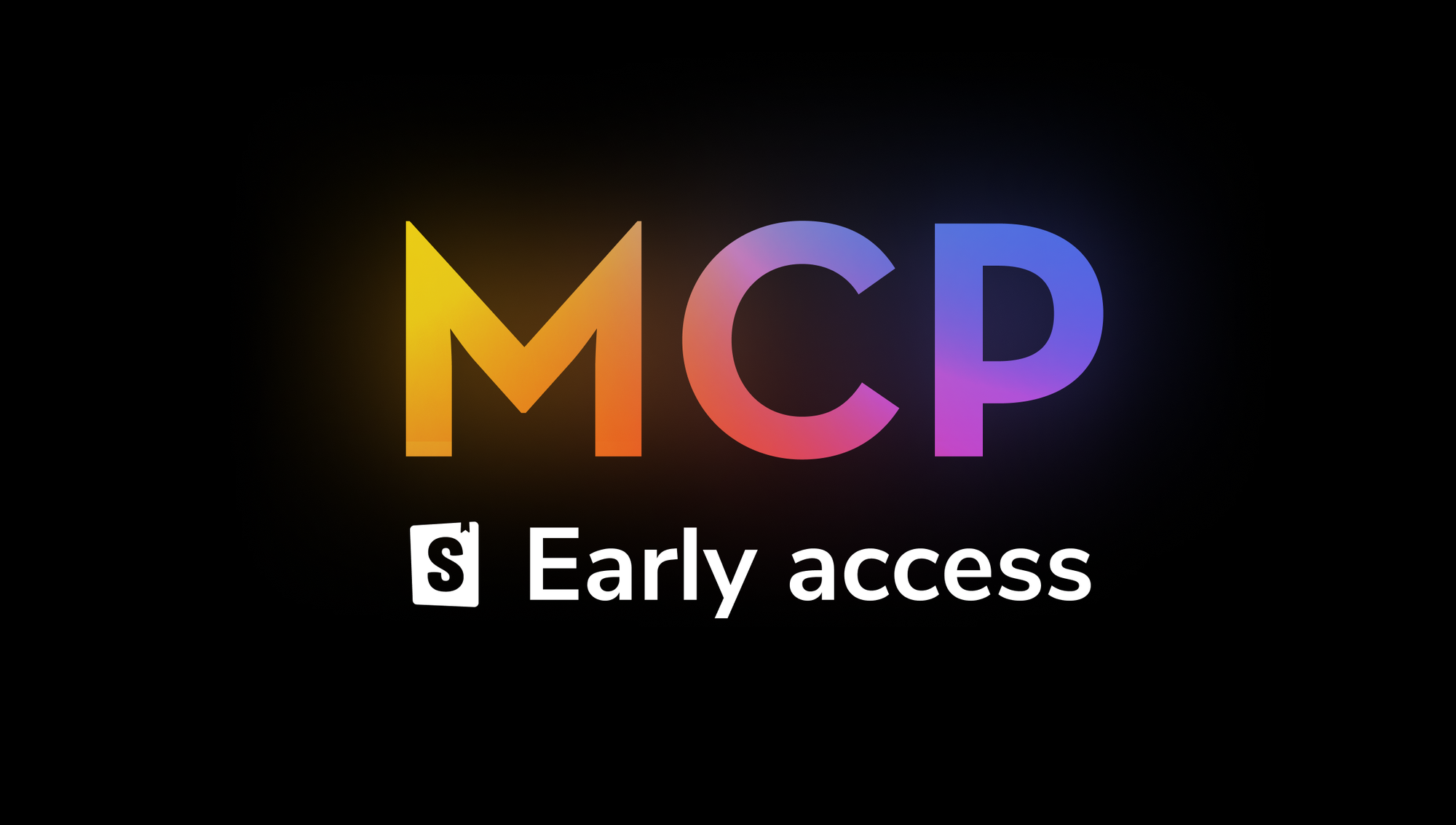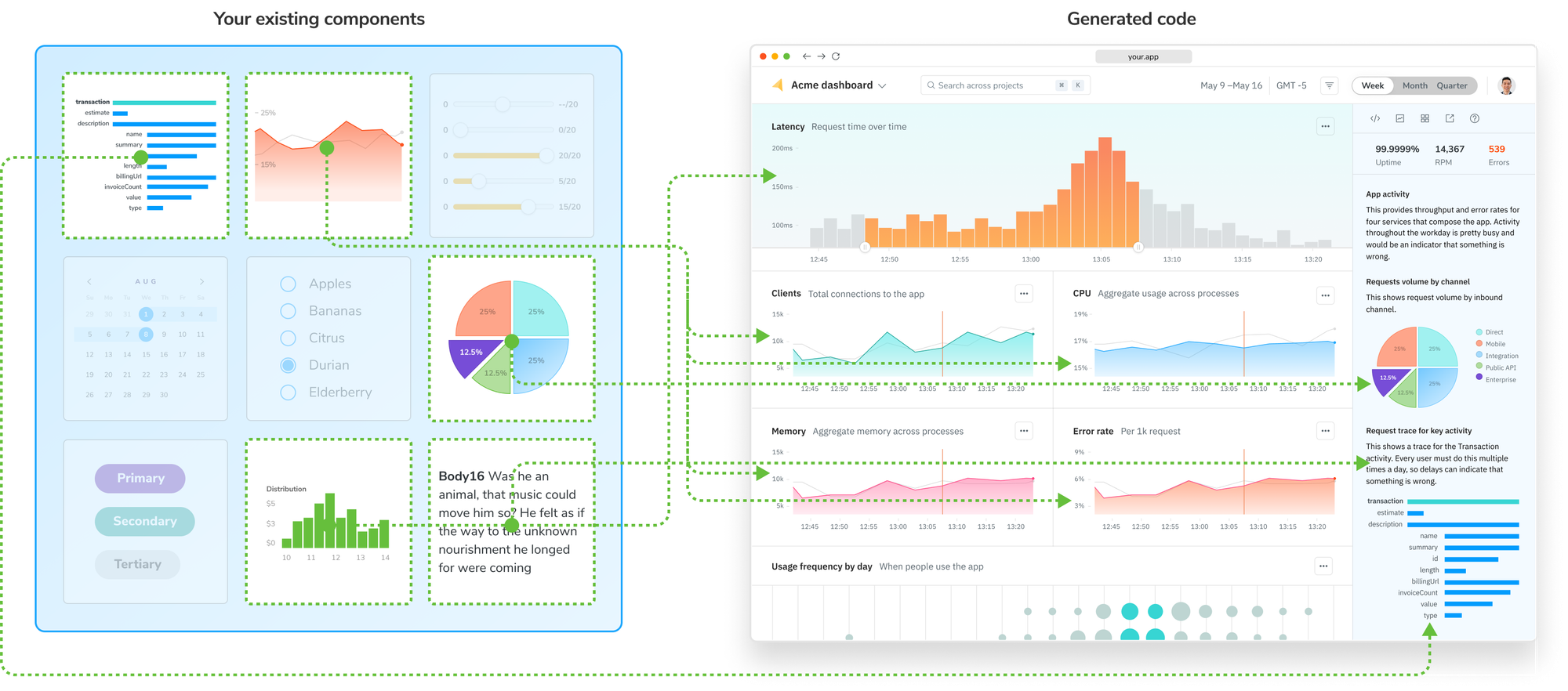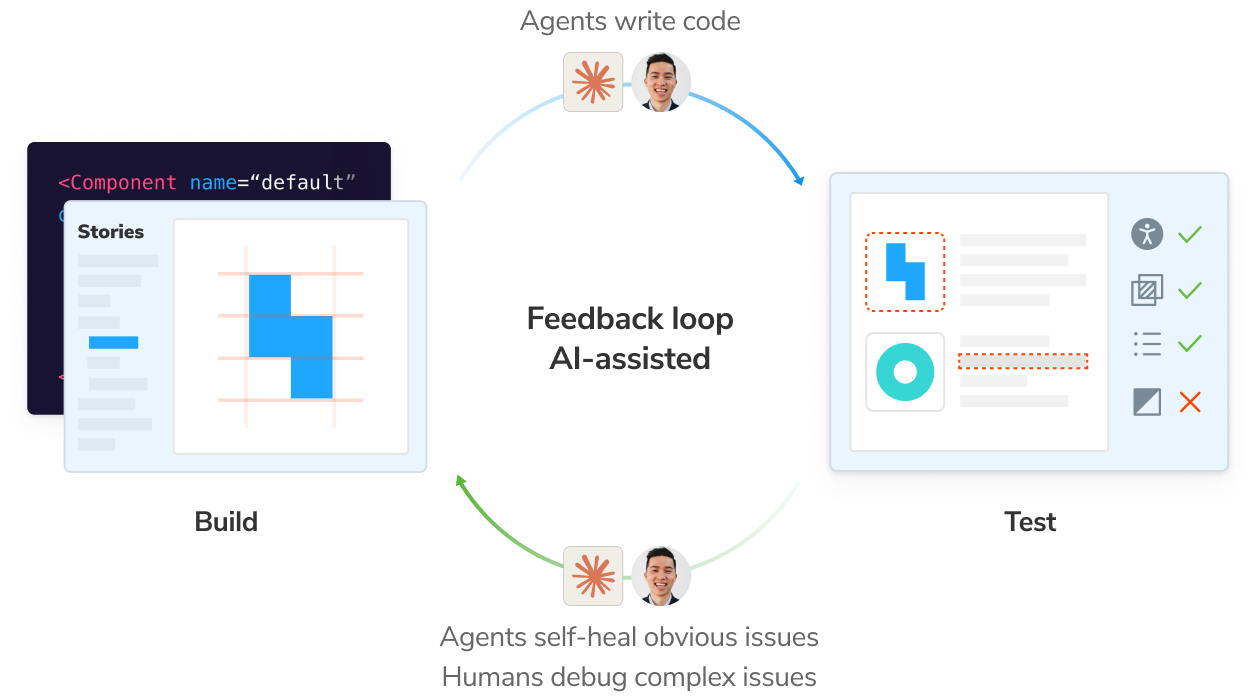
Storybook MCP sneak peek
Generate code with your components faster using fewer tokens
For years, Storybook has been helping teams define their UI. Every story, doc, and test captured a decision about structure and behavior. That record helped people build more durable frontends.
Now coding agents are entering the workflow. These agents generate code faster than before, but much of it is unmergable slop: wrong props, bogus states, and render errors.
The gap is easy to spot. Agents need the same context people do: which components exist, how they behave, and what “correct” looks like. Storybook has that context.
Storybook MCP equips agents with your team’s frontend patterns. Everything you’ve already built with Storybook is now available as machine-readable context. Benchmarks show this generates better quality code faster with fewer tokens.
Sign up for Early AccessWhy now?
Every AI rollout hits the same wall: the generated code looks promising until you try to merge it. Agents move fast but they guess at patterns so you spend more time fixing their code than writing your own.
An agent is only as good as its training data. When you ask it to code, it defaults to average. However, your stories, docs, and tests are far from average. They describe how your frontend actually works in production. Giving an agent this data helps align its code with your quality standards.
Can’t I just point my agent at the file system?
More context isn’t always better. Point an agent at /components or node_modules and it faces the same challenges as a human would. There are thousands of files, internal utils, and type soup to load into context which costs tokens. MCP gives agents curated context which can deliver quality with a smaller payload.
What’s in Storybook MCP?
Storybook MCP helps agents follow your patterns and pass your tests. It equips agents with two things they’ve never had before: machine-readable component metadata and an iterative loop to self-heal mistakes.

Reuse existing patterns
Quality starts with reuse. Professional developers avoid introducing new patterns when solid ones already exist to avoid tech debt.
Storybook MCP serves component metadata, usage snippets, and types in an optimized payload. This gives agents the most useful context in the fewest possible tokens.
In our benchmarks, agents working from this context finish tasks faster with fewer tokens, all while generating code that stays within your standards.

Self-heal errors and bugs
Reuse gets an agent pretty close. Self-healing gets it correct.
Agent workflows break when there’s no feedback loop. The model generates code, claims it’s done, and leaves you to chase down the bugs.
Storybook MCP includes an autonomous correction loop. It lets agents run your component tests (interaction and accessibility), see what fails, and fix their own bugs. This way, a developer only has to step in after the tests pass. No more prompt babysitting.

Sign up for the Early Access Program
We’re looking for early adopters of LLMs on advanced design system teams. Criteria:
- You have a mature React design system with CI coverage
- You can update to Storybook
10.1-alpha - You have engineering bandwidth to set up the MCP workflow and tune your design system to provide necessary context
- You can actively provide feedback and be our design partner
The program is an ideal fit for teams planning AI rollouts in 2026. You’ll get hands-on support wiring MCP into your setup. We’ll tune quality, speed, and token usage together.
Early Access starts on December 2. Space is limited, so we recommend signing up early. Teams will be invited in small cohorts.
Sign up for Early Access